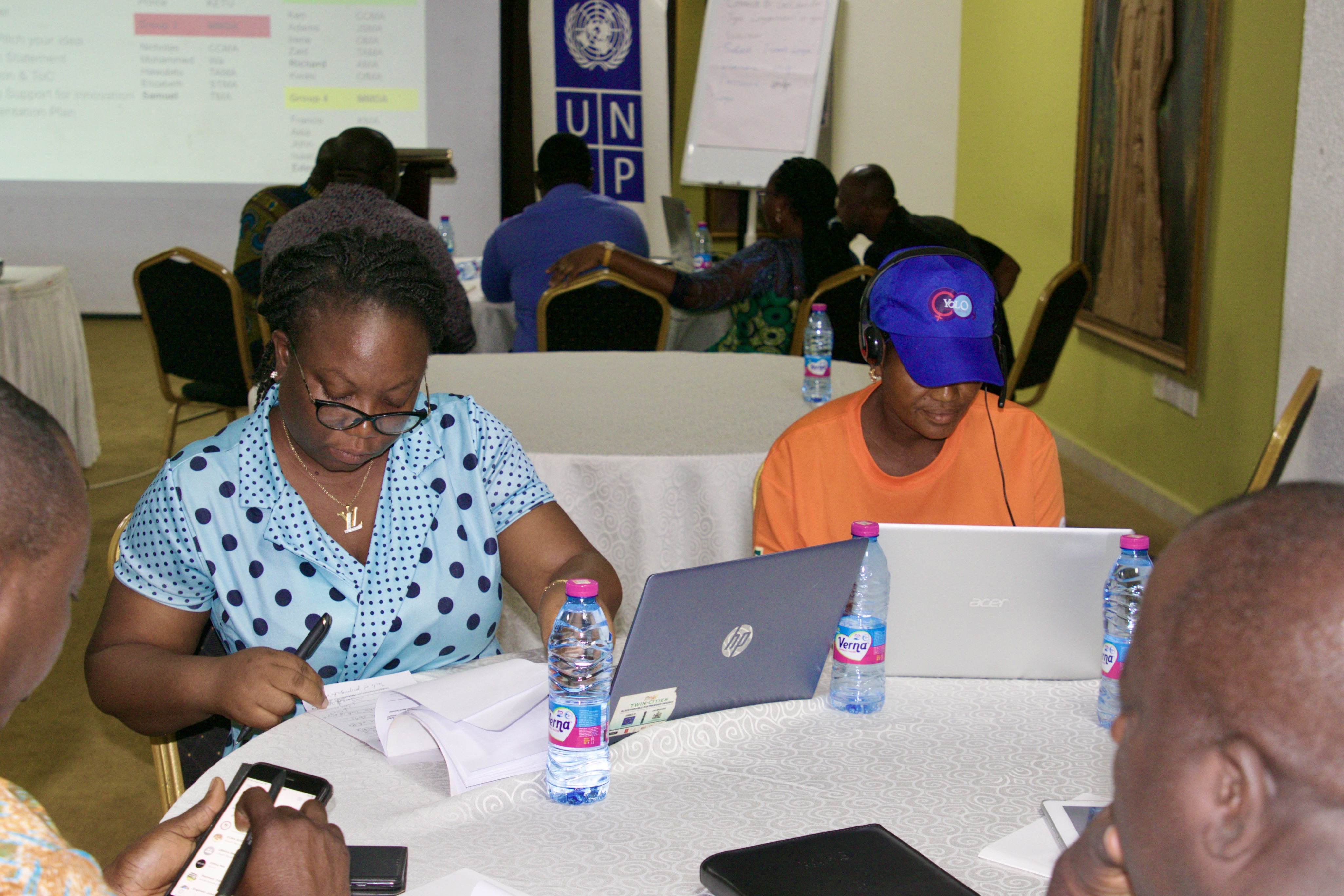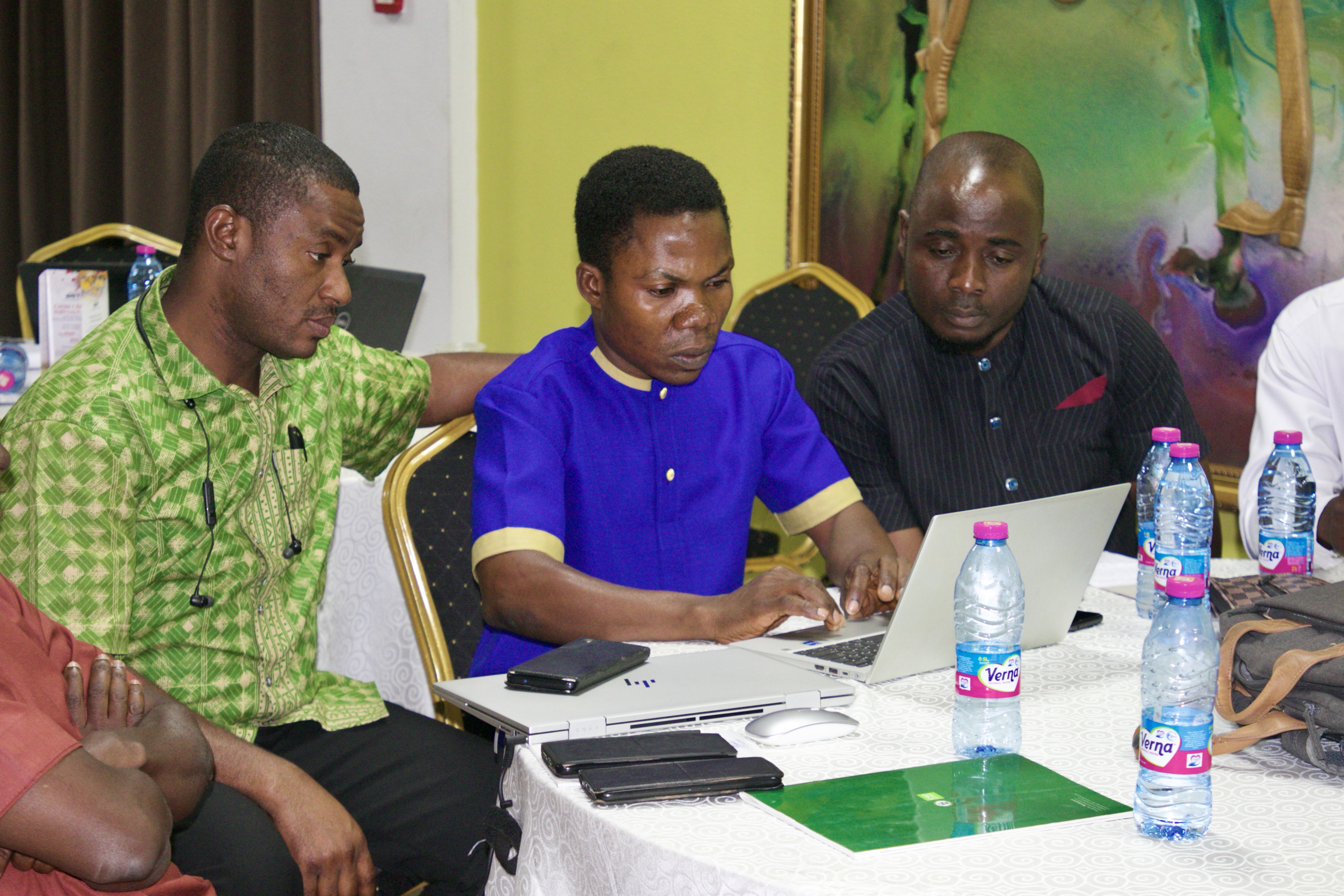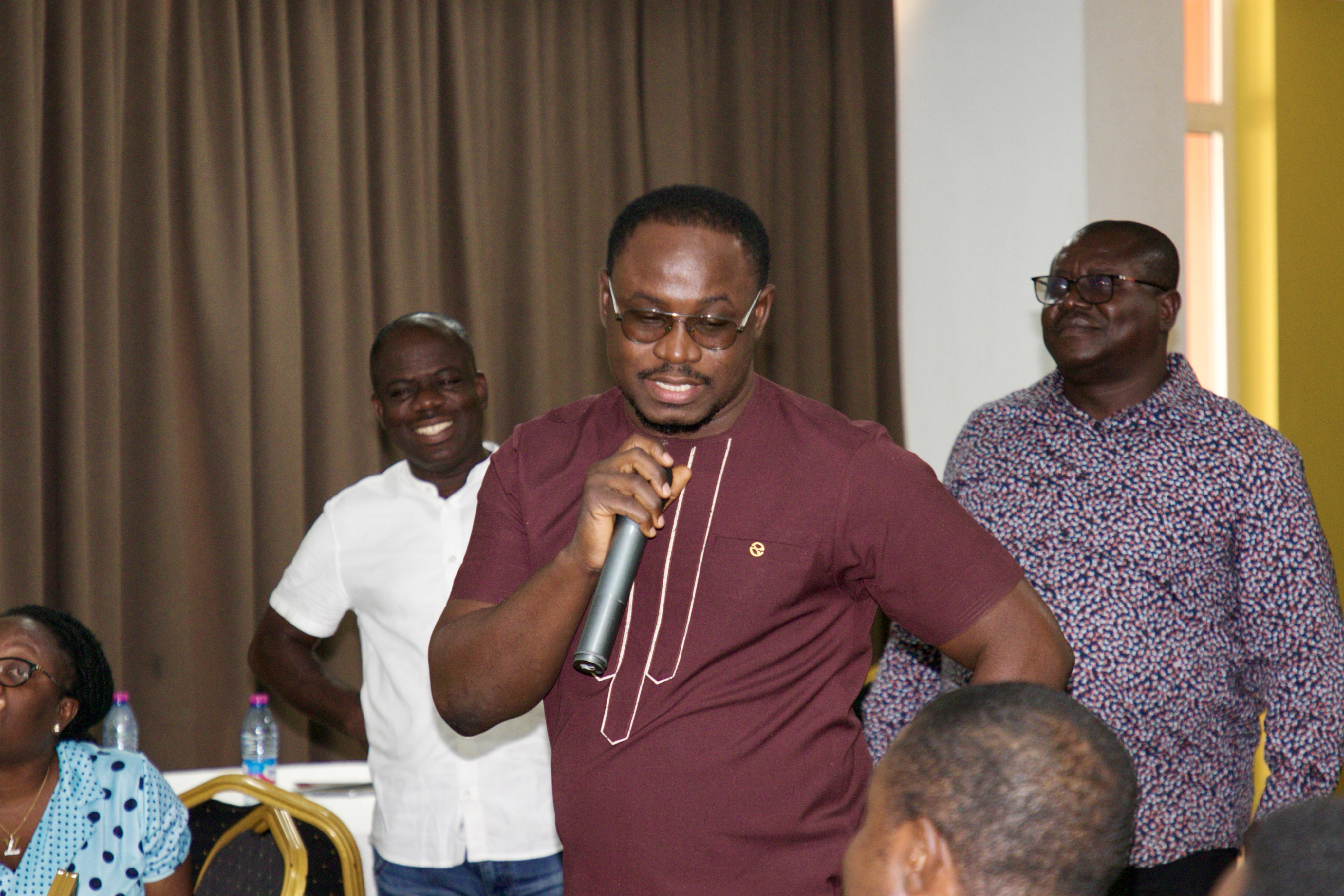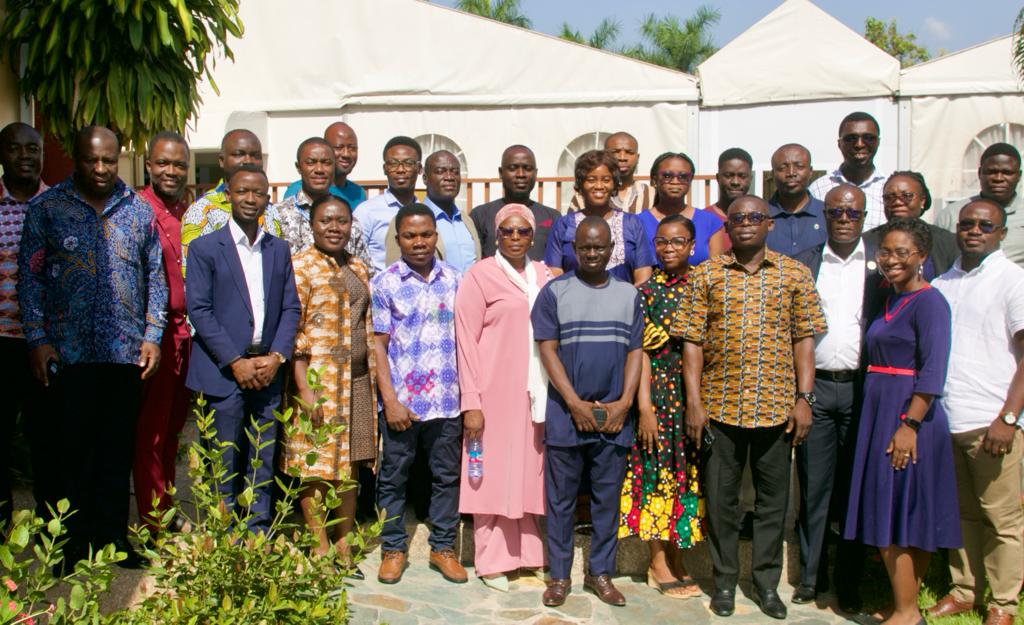Urban innovation bootcamp to drive sustainable solutions
December 22, 2023

Elizabeth Arthur, a Metro Statistician at the Secondi-Takoradi Metro Assembly(left), engaging with fellow participants in a group discussion.
The massive migration of people from rural areas to cities has led to overcrowding in most cities across West Africa, placing a significant burden on local authorities to provide basic social amenities.
In response to Africa's unprecedented urbanization, expected to reach 1 billion people in urban areas by 2042, the United Nations Development Programme (UNDP), in collaboration with the National Association of Local Authorities of Ghana (NALAG) and the Commonwealth Local Government Forum (CLGF), organized an urban innovation bootcamp. The primary goal of the initiative was to provide a systematic introduction to problem-solving and innovation skills that Ghanaian cities need to design and implement mission-driven and sustainable urban projects tailored to the specific needs of their communities.
The urban innovation bootcamp forms part of a broader framework of the Global Mayor Challenge, a global competition designed to identify innovative, impactful, and replicable ideas led by municipalities worldwide.
The training was opened to 10 selected municipalities and local governments in Ghana, that submitted their applications for the 2021 Global Mayor Challenge: Kumasi, Accra, Tema, Sekondi Takoradi, Cape Coast, Tamale, Wa, Jaman, Oforikrom, and Ketu.
Joshua Tetteh-Nortey, Project Supervisor, who led Kumasi in the 2021 Global Mayor Challenge, which emerged as one of the 15 winning cities, expressed gratitude to UNDP and partners. He stated "I am delighted to witness other districts benefiting from the training, recognizing the importance of co-creation and solution design. Engaging with diverse innovative ideas from these districts in group settings fostered collaborative sharing of thoughts and insights."
Elizabeth Arthur, a Metro Statistician at Secondi-Takoradi Metro Assembly, emphasized the transformative impact of the training. She said "The urban innovation bootcamp has enlightened me on the pivotal role of collaborative, data-driven, and human-centered design in developing sustainable solutions tailored to the specific needs of our urban community. I’m well-prepared and more confident now to apply for funding opportunities for my municipality."
The escalating demand for urban services underscores the significance of this timely training, urging proactive measures to address urbanization challenges at the district level. Hon. Kokro Amankwah, NALAG's General Secretary, expressed gratitude for the timely support from UNDP and CLGF. He noted that, "recognizing the need for a new approach in solving the negative issues of urbanization, we extend our gratitude to UNDP and partners for organizing this Innovation Bootcamp. We pledge to leverage the knowledge gained to design innovative solutions for future funding applications."
Through collaboration, innovation, and sustainable development, UNDP is committed to enhancing the capacities of all stakeholders. This commitment aims to create resilient cities well-prepared for the negative impacts of urban growth, fostering inclusivity and livability.
The Urban Innovative Bootcamp included activities like building skills in public problem definition, developing and testing innovative ideas, creating a theory of change linked to the SDGs, crafting implementation plans, and assessing the viability, feasibility, and impact of ventures presented by district assemblies. Furthermore, participants honed their skills in writing compelling proposals to attract funding, laying the groundwork for a transformative wave of sustainable urban projects in Ghana.

Joshua Tetteh-Nortey, Project Supervisor (left) with fellow Participants developing a proposal in powerpoint.

Trainer, Dr. Joseph Ayitio interacting with participants

Urban Innovation Bootcamp participants in a group photo

 Locations
Locations



